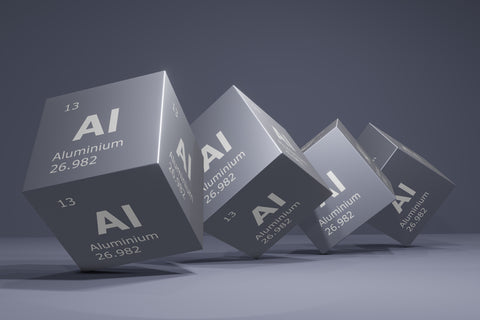As the UK economy continues to evolve and diversify, one sector that is gaining increasing importance is that of non-ferrous metals. These valuable materials are playing a crucial role in driving innovation, sustainability, and economic growth across various industries.
What are Non Ferrous Metals?
Non-ferrous metals are a vital component of the UK economy and play a crucial role in various industries such as construction, transportation, packaging, and electronics. But what exactly are non-ferrous metals?
Simply put, non-ferrous metals are any metal or alloy that does not contain iron in significant amounts. This includes metals like aluminium, copper, lead, zinc, nickel, tin, and precious metals such as gold and silver. These metals have unique properties that make them highly desirable for various applications.
One of the main characteristics of non-ferrous metals is their resistance to rust and corrosion. Unlike ferrous metals that easily rust when exposed to moisture and oxygen, non-ferrous metals have a natural protective oxide layer that prevents them from corroding. This makes them ideal for outdoor use in industries like construction and transportation.
Another advantage of non-ferrous metals is their high malleability and ductility. These properties allow them to be easily shaped into different forms without breaking or cracking. This makes them suitable for applications where intricate designs or complex shapes are required.
Non-ferrous metals also have excellent thermal conductivity, meaning they can transfer heat efficiently. This makes them useful in industries such as electronics where heat dissipation is essential to ensure optimal performance.
In addition to these physical properties, non-ferrous metals also have high electrical conductivity. This makes them an integral part of electrical wiring systems used in buildings and vehicles.
The demand for non-ferrous metals has been steadily increasing over the years due to their unique properties and versatility in various industries. In fact, the UK has seen a significant rise in its production of these metals to meet the growing demand both domestically and globally.
The automotive industry is one of the biggest consumers of non-ferrous metal products with aluminium being widely used for car bodies due to its lightweight nature. The packaging industry also heavily relies on these types of metal for cans, foils, and other containers due to their resistance to corrosion.
Moreover, the construction industry has also seen a surge in the use of non-ferrous metals for roofing, plumbing, and electrical wiring systems. This is due to their durability and low maintenance costs compared to ferrous metals.
Non-ferrous metals are an essential part of the UK economy and have become increasingly important in various industries. With their unique properties and versatility, it is no surprise that their demand continues to grow.
Importance of Non-Ferrous Metals in the UK Economy
Non-ferrous metals refer to any metallic elements or alloys that do not contain iron. These include copper, lead, zinc, aluminium, and precious metals such as gold and silver. While these metals may not be as well-known as their ferrous counterparts like iron and steel, their importance in the UK economy should not be overlooked.
One of the main reasons for the growing importance of non-ferrous metals in the UK economy is their widespread use in various industries. Copper, for example, is an essential component in electrical wiring and plumbing systems. The construction industry also heavily relies on non-ferrous metals for roofing materials, gutters, and window frames.
Moreover, non-ferrous metals are crucial in the production of transportation vehicles such as cars, trains, and planes. Aluminium alloys are often used due to their strength-to-weight ratio and corrosion resistance properties. In fact, it has been estimated that each new car produced contains around 50 pounds of copper wiring! The demand for non-ferrous metals will continue to grow with advancements in technology that require lightweight yet durable materials.
The UK is also a major player in the global market for non-ferrous metal production and trade. According to data from HM Revenue & Customs (HMRC), exports of processed non-ferrous metal ores accounted for £3 billion worth of goods exported by the UK between April 2022 - March 2023. This indicates a significant contribution to the country's GDP (gross domestic product) through exports alone.
The mining industry plays a crucial role in securing the supply of these valuable resources within the country's borders. The UK has several active mines producing various non-ferrous metals such as tin ore from Cornwall and lead-zinc deposits from Derbyshire. Additionally, recycling efforts have been increasing steadily over recent years which reduces reliance on imports.
Furthermore, investing in research and development surrounding non-ferrous metal extraction techniques has allowed companies to find more efficient and cost-effective means of obtaining these metals. This has not only boosted the UK's economy but also reduced its carbon footprint by minimizing the need for resource-intensive methods of production.
As technology continues to advance, the demand for these valuable resources will only increase, making it essential for the country to continue investing in sustainable ways to meet this demand.
Market Share of Each Non-Ferrous Metal in the UK
- Aluminium: With a market share of over 50%, aluminium is the most widely used non-ferrous metal in the UK. This lightweight and corrosion-resistant material have various applications in industries such as transportation, construction, and packaging. The demand for aluminium is expected to grow even further due to its sustainability benefits and recyclability.

- Copper: Copper holds an essential place in the UK's non-ferrous metals market, with a market share of around 20%. Its excellent electrical and thermal conductivity make it an ideal choice for wiring and electronics industries. Moreover, copper is also widely used in plumbing systems, roofing materials, and industrial machinery.
- Zinc: The use of zinc has been steadily increasing in recent years due to its anti-corrosive properties. With a market share of around 10%, zinc is primarily used for galvanising steel to prevent rusting. It also has significant applications in the production of brass, bronze, and other alloys.
- Lead: Despite facing some environmental concerns over its usage, lead still holds a considerable market share of around 5% in the UK's non-ferrous metal industry. Its malleability and low melting point make it suitable for numerous applications such as batteries, ammunition production, cable sheathing, and radiation shielding.
- Nickel: Nickel has seen a steady growth in demand due to its extensive use in stainless steel production (along with chromium). It also has applications in electroplating processes and battery manufacturing industries.
- Tin: Although tin's overall market share may be small compared to other non-ferrous metals at about 2%, it plays an essential role globally in the production of electronic components, soldering materials, and tinplate for food packaging.
- Other non-ferrous metals: Apart from the above-mentioned metals, there are various other non-ferrous metals such as titanium, chromium, and cobalt that have niche applications but contribute significantly to the UK's economy.
The market share of each non-ferrous metal in the UK reflects their diverse range of applications across industries. As we move towards a more sustainable future, these materials will continue to play a vital role in driving economic growth and innovation.
Sustainability and Environmental Impact of Non-Ferrous Metals in the UK
Sustainability and environmental impact are two important factors that cannot be ignored when discussing the growing importance of non-ferrous metals in the UK economy. Non-ferrous metals, such as copper, aluminium, zinc, and lead, play a crucial role in various industries and contribute significantly to the UK's economic growth. However, their production and use also have a significant impact on the environment.
One of the main concerns surrounding non-ferrous metals is their extraction and processing methods. These processes often involve energy-intensive activities that emit harmful greenhouse gases into the atmosphere. In addition to contributing to climate change, these emissions can also have adverse effects on human health and local ecosystems.
Fortunately, there has been a growing emphasis on sustainability within the non-ferrous metal industry in recent years. Companies are increasingly adopting more environmentally friendly practices to reduce their carbon footprint and minimize their impact on the environment. This includes implementing renewable energy sources for production processes, improving efficiency in resource use, and implementing recycling programs.
Recycling plays a vital role in reducing the environmental impact of non-ferrous metals. It not only conserves natural resources but also reduces energy consumption during production. According to a report by Metal Focus Ltd., over 60% of copper used in Europe comes from recycled sources. This shows that sustainable practices are gaining traction within the industry.
Furthermore, stricter regulations have been put in place to ensure responsible mining practices for non-ferrous metals globally. The UK has its own set of regulations for mining companies operating within its borders under laws such as The Environmental Permitting Regulations (EPR) and The Control of Pollution Act (COPA). These laws aim to mitigate any potential negative impacts on local communities or natural habitats.
Another factor contributing to sustainability is innovation within the industry itself. Many companies are investing in research and development to find alternative materials or develop more efficient production methods with lower environmental impacts.
While non-ferrous metals play an essential role in the UK economy, it is crucial to address their environmental impact. The industry has made significant strides towards sustainability and continues to find ways to reduce its carbon footprint. With continued efforts and support from governments and consumers, non-ferrous metals can continue to contribute positively to the UK economy while also minimising their impact on the environment.
The future of non ferrous metals in the UK economy looks promising. With their essential role in renewable energy production, potential for growth in lightweight materials market, and opportunities arising from Brexit, non ferrous metals are likely to continue playing a vital part in the UK's economic success. However, careful management of challenges such as fluctuating commodity prices will be necessary to ensure sustained growth and success within this sector.











